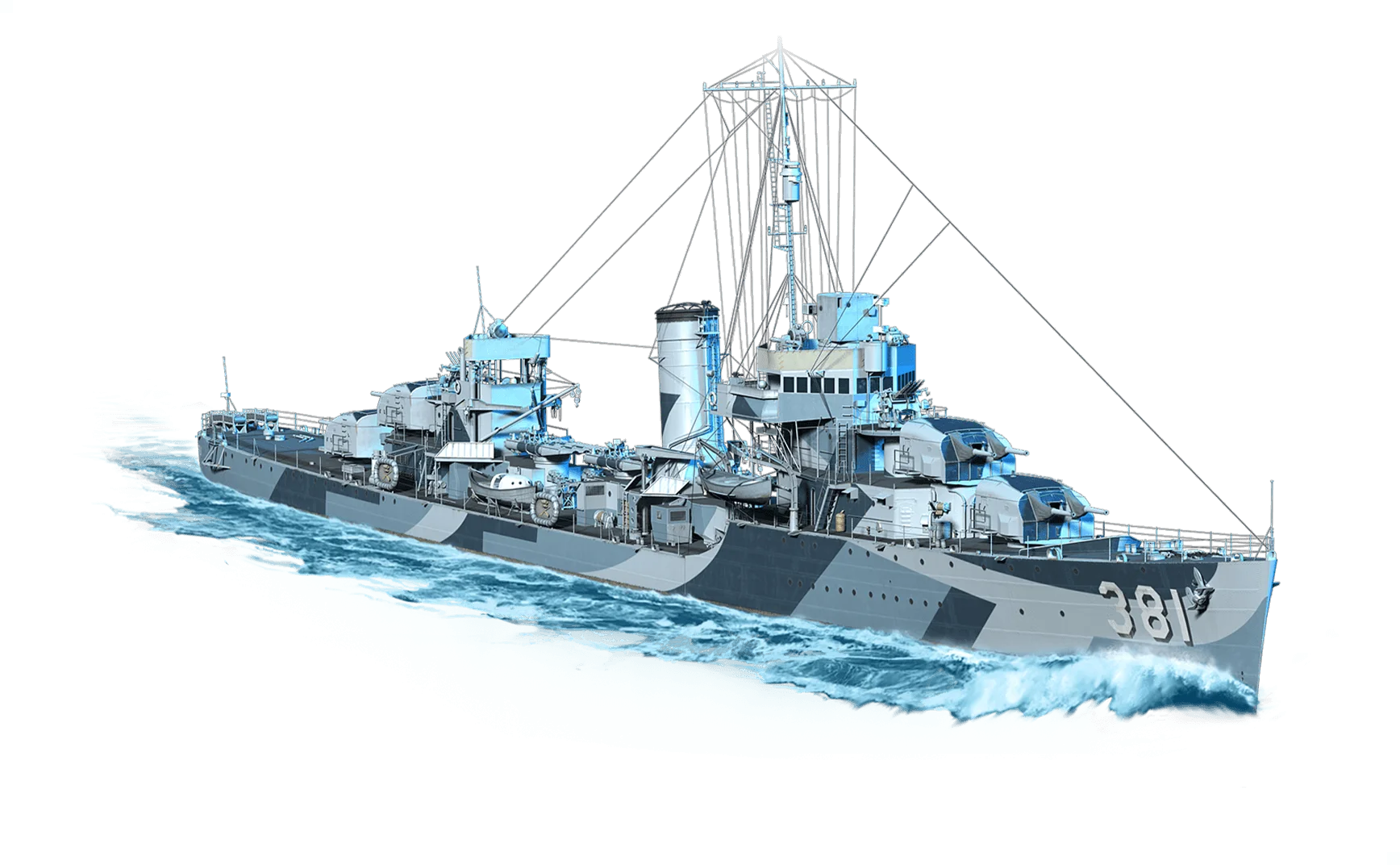Do you like the Ship Page updates?We need your opinion – are these changes we've made to these pages an improvement?
Want to hide ads?
Become a Supporting Member
Become a Supporting Member
Tech Tree
American DestroyersII Wickes
III Clemson
IV Farragut
V Mahan
VI Benson
VII Fletcher
VIII A. M. Sumner
Overview
Jump to
44Builds Submitted
10Reviews Submitted
25Records Submitted
Mar 2022Added to WoWS Builds
Introduction to the USS Somers
The USS Somers was an American destroyer flotilla leader, recognized for its considerable armament and torpedo capabilities. Designed to lead and coordinate destroyer units, the Somers-class destroyers were intended to command and maximize the effectiveness of dest...
Somers CE Stats
Survivability
Armament
Air Defense
Maneuverability
Detectability
Somers CE Records
damage314109
Envious79
Dec 2023damage278216
Troychestwig46
Dec 2023damage268827
ACSCJOHN
May 2022damage263025
Captain Janks
Jul 2022damage249619
The_king181204
Jun 2022damage241743
RatzNest666
Mar 2022damage217139
SCHNEEVITO
Sep 2024damage178653
TheMugGuyBR
Mar 2022damage178653
TheMugGuyBR
Mar 2022damage178114
Sebascraft97
Mar 2022Somers CE Reviews
Power4.00
Fun4.10
Learning Curve3.70
Skill Ceiling3.10
Utility3.90
Kingoftheseas2
Power4
Fun4
Learning Curve2
Skill Ceiling3
Utility4
SniperLeon
Power5
Fun5
Learning Curve4
Skill Ceiling3
Utility5
Major Englush
Power4
Fun5
Learning Curve4
Skill Ceiling3
Utility4
williamylee
Power4
Fun5
Learning Curve4
Skill Ceiling4
Utility4
Sylar Shacback
Power4
Fun4
Learning Curve3
Skill Ceiling4
Utility3
Peer Comparison
Tier VII DestroyersSomers CE Builds
Community submitted commander builds3
Torp SomersTroy_360
Apr 20223
Survivalist Gun BoatTroy_360
Apr 20223
american shimaSailorChamp
Mar 20222
Fastest torp reload buildVlad760
Mar 20222
Max Gunboatkpz1234
Mar 20222
Open water somersMortenMAF
Apr 20222
Somers (LCS) - Zoning ThreatRedWineLover17
Jun 20221
Top dog Cap ContesterOrayzeVampire
Mar 20221
Somers Torps are Kinda CrakcedSmolBote
Mar 20231
Brawler SomersRei#9965
Aug 2022Somers CE Consumables
Slot 1
Damage Control Party
- Charges
- ∞
- Cooldown
- 40 s
- Duration
- 5 s
Slot 2
Smoke Generator
- Charges
- 2
- Cooldown
- 240 s
- Duration
- 28 s
- Dispersion Time
- 124.0 s
Slot 3
Engine Boost
- Charges
- 2
- Cooldown
- 180 s
- Duration
- 120 s
- Speed Boost
- 8%
Want to hide ads?
Become a Supporting Member
Become a Supporting Member
Want to hide ads?
Become a Supporting Member
Become a Supporting Member
